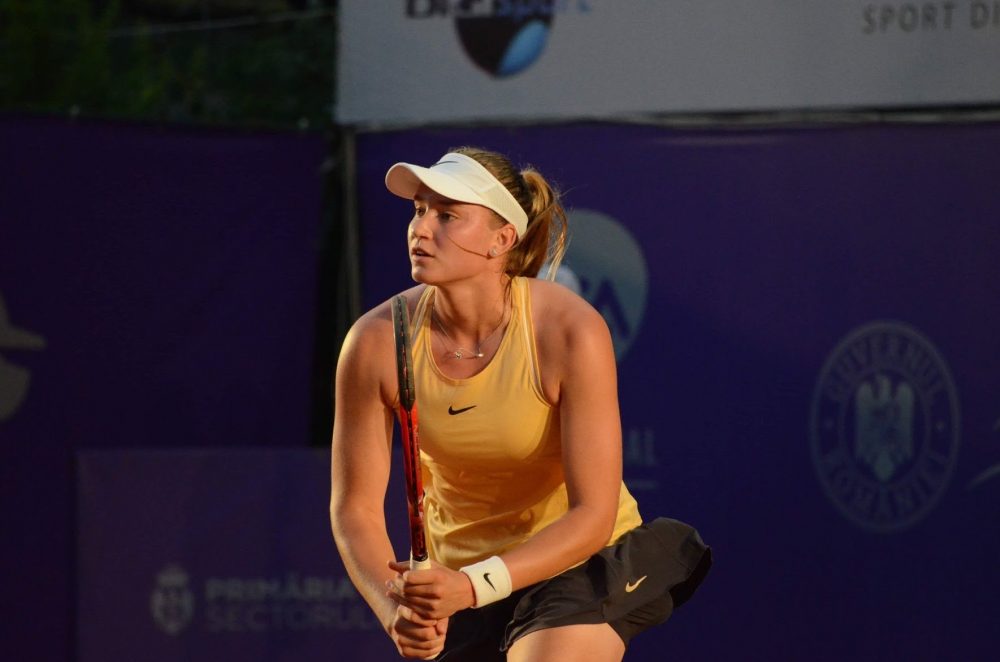One of the most fascinating things in tennis is witnessing the ascent of special players. Whether they do it gradually or out of the blue, young athletes experience a breakthrough and emerge from virtual obscurity, revealing themselves to the world.
I’ve mentioned special players because, in order to reach a higher plateau (that of champions), it is necessary that the stars that aligned to propitiate their emergence stay that way for quite some time. Astrological metaphors aside, the careers of up-and-coming sportspeople are laden with unpredictability and with setbacks that might shatter the prospects of the most promising ones. Timing is essential to avoid health issues, injuries, or even growing pains that might be acceptable and expected at other times, but that might compromise an entire career if occurring at the worst possible moment.
This long premise is needed to approach what Elena Rybakina has done in 2020, because it’s the token of a special player. And if she’ll be able to keep up with what she’s accomplished over the last few weeks, then we will be able to say that we were all witnesses to the surge of something even bigger, perhaps a Top 10 player, perhaps a champion.
In order to talk about her, I need to go back to her beginnings. Setting up the table, perhaps perfunctorily, is essential to understanding her growth and evolution, which have transformed her into the unique player she is today.
Rybakina’s beginnings
Elena Rybakina was born in Moscow on June 17, 1999, and started playing tennis at six. She’s said in an interview that tennis was a “second choice” because of her height: she dabbled for a bit with gymnastics and ice skating, but every coach told her clearly that she was too tall to be a standout (well, if you’re tall you do stand out, but I don’t think that the irony translates in Russian as well). At her first ice skating training, all newcomers were split into two groups: those who could hope to reach official competitions, and those who could only do it for fun – Elena ended up in the latter.
Racquets and fuzzy balls then became the default option, but, while initially a rebound game for the heartbroken child, tennis soon became the real love affair for Elena. She very simply enjoys playing, and such enjoyment has remained through the years, even when sacrifice and hard work became staples in order to reach loftier heights – tennis is still a game to her.
After a few local tournaments, here comes the big stage of international junior tournaments. As an understudy, Rybakina’s career was marked by good-yet-not-too-good results. She played quite a lot (95 wins, 35 losses), and after a few bouts she began to be called up for team competition by the Russian federation, becoming an athlete of national interest.
She then reached the junior Top 100, but didn’t become a household name till the very end of her junior career. In 2017, she reached the semis at the French Open, the quarters at Flushing Meadows, and above all won the Bonfiglio Trophy, a Grade A tournament (just as important as a Major), in May. At the Milan event, she beat Wang Xiyu in the second round, and Iga Swiatek in the final, although it should be noted that the Pole is two years younger than Rybakina.
The Bonfiglio final can still be watched on YouTube: that day, Swiatek leapt out of the blocks, finding herself ahead with a score of 6-1 6-5, and about to serve the match out. At the decisive moment, though, she couldn’t seal the deal (especially because of a high double fault tally), paving the way for Rybakina’s 1-6 7-6 6-3 comeback win. Therefore, the takeaway was that Swiatek was more talented albeit more mercurial, and that she was the one who would leave a mark on women’s tennis.
Thanks to the results she racked up over the last few months as a junior player, at an age when most of her peers had already turned pro, Elena reached her highest ranking at N.3 in December 2017. Throughout her junior days, she trained at the Spartak Moscow club under Andrey Chesnokov (who needs no introductions) and Evgenia Kulikovskaya (former world N.91 in 2003), while her fitness regiment was managed by Irina Kiseleva, former modern Pentathlon world champion. Obviously, they weren’t her exclusive coaches, but rather mentored the whole young crux of the tennis club.
Meanwhile, Rybakina found her feet at the ITF level, and, like with her junior career, she didn’t stand out as particularly precious, but rather matured at a steady pace. At the end of 2017, she was the 420th player in the world, and suited herself for one more season of ranking-climbing. In 2018, she won a 15K in Kazana, while also debuting on the WTA Tour thanks to a wildcard for the St. Petersburg indoor event. There, she reached the quarter finals by knocking out in a major upset the then world N.7 Caroline Garcia (2-6 7-6 6-4) before bowing out against Julia Goerges. The 125 points she earned represented a shade less than half of her season’s haul, and boosted her ranking up to the 191st spot.






